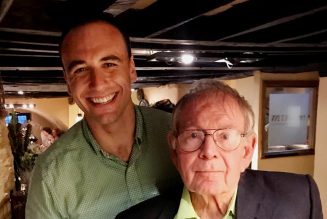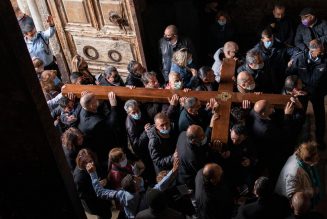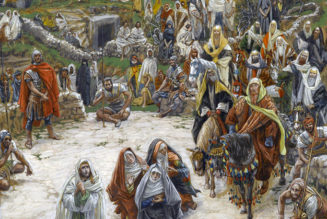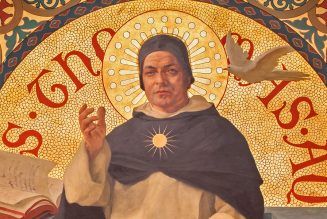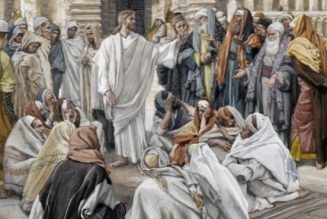Nations and their armies have often gone to war believing “God is on our side.” In a little-known incident at the outset of World War I, that sentiment seemed to have been visibly affirmed for a number of British soldiers.
In early August 1914, soon after tensions on multiple fronts and levels erupted into war, Great Britain dispatched the British Expeditionary Force to counter the German invasion of Belgium. The Germans had their sights on Paris, and the BEF met the German Army at the Belgian town of Mons, southwest of Brussels.
The BEF was vastly outnumbered but fought valiantly against the forces of the Second Reich. Unfortunately, they could not hold the line. As they retreated, the Germans pursued them.
By August 26, the two sides engaged in fierce battle at Le Cateau, France. Multiple British fighters swore later that they witnessed celestial intervention against the German onslaught.
“Some Tommies swore it had been St. George, the warrior saint of England,” writes historian Robert Barr Smith on the website Warfare History Network, reproduced at The National Interest. “Others said it might have been St. Michael, since he carried a gleaming sword. A few said they couldn’t tell, but it had definitely been an angel, maybe more than one. Some men were sure they had seen three wonderful, tall figures towering above the smoke and dust of the battlefield. For others it had been a brilliant light, a golden aura against a brilliant sky, or a cloud in which indistinct but heroic figures had come and gone, aided by phantom archers from the olden days of the English warrior-kings. Whatever it was, the soldiers agreed, it had saved their lives. No amount of civilian scoffing would ever change that.”

The “scoffing” back home took the form of suggestions that the men were overextended in battle circumstances, leading to hallucinations. But the very fact that they lived to tell about what they witnessed gave credence to the testimonies of those on both sides of the battle.
“In one action during the long retreat, an understrength British battalion, about to be overrun by masses of German infantry, became aware of a shadowy army fighting beside them, an army of bowmen of the days of Agincourt, five centuries gone,” wrote Smith, who served in Vietnam and retired as a law professor from the University of Oklahoma. “These phantom men-at-arms cried aloud to St. George, and their swift arrows darkened the sky. A great voice was heard to thunder over the din of battle, ‘Array, Array!’ German prisoners taken in the action said they were bewildered that their British opponents had reverted to wearing armor and shooting arrows.”
… weary British soldiers saw tall, unearthly figures materialize in the gloom above the German lines. They were winged like angels, and as they hovered in the gathering darkness, the Germans inexplicably halted and the British slipped away to safety. During the retreat, some soldiers swore that they had seen the face of the patron saint of England. A wounded Lancashire Fusilier asked a nurse for a picture or medal of Saint George because, he said, he had seen the saint leading the British troops at Vitry-le-Francois. A wounded gunner confirmed his story. He described the saint the same way the fusilier had — a tall, yellow-haired man on a white horse, wearing golden armor and wielding a sword. Other soldiers agreed that he looked just like his image on the gold sovereigns of the day.
The Germans, though they outnumbered the British in men and arms, saw something that convinced them that their enemies had strong reinforcements. Apparently, the BEF did have strong reinforcements, but not human ones.
History buffs — and anyone who wants to read an amazing account on this Memorial Day weekend — can read the whole article at The National Interest.


